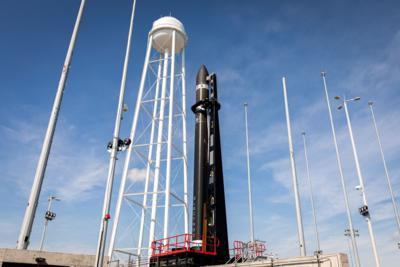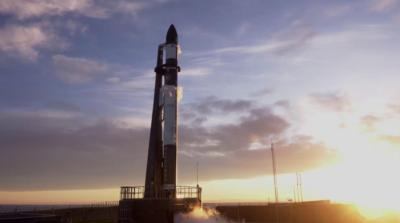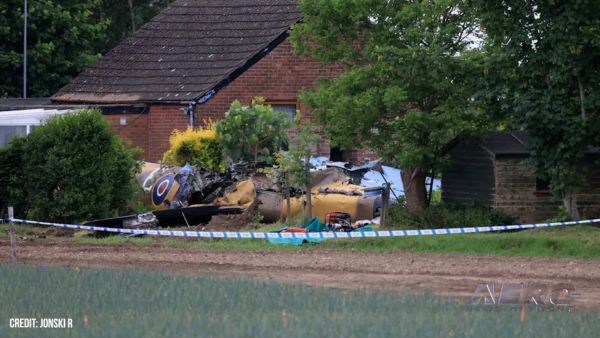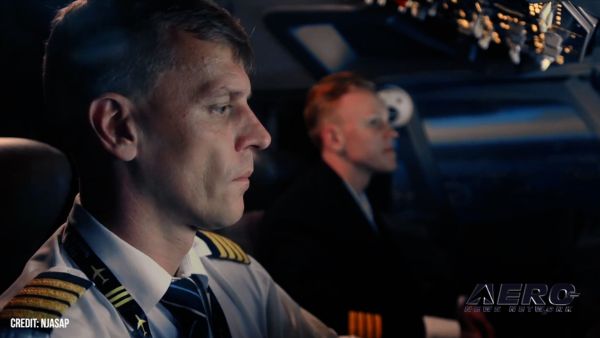Tue, Sep 08, 2020
Missions Will Launch From Wallops Island Complex 2
Rocket Lab has been granted a five-year Launch Operator License by the FAA for Electron missions from Rocket Lab Launch Complex 2.

The Launch Operator License allows for multiple launches of the Electron launch vehicle from Rocket Lab Launch Complex 2, eliminating the need to obtain individual, launch-specific licenses for every mission and helping to streamline the path to orbit and enable responsive space access from U.S. soil.
Located at the Mid-Atlantic Regional Spaceport within the NASA’s Wallops Flight Facility on Wallops Island, Virginia, Launch Complex 2 has been designed to provide responsive launch capability to support for U.S. government missions. Between Launch Complex 2 in Virginia and Launch Complex 1 in New Zealand, Rocket Lab can support up to 130 launches each year across a range of orbital inclinations.
The FAA Launch Operator Licence is a major administrative milestone ahead of upcoming Electron launches, including a NASA mission to lunar orbit in support of Artemis, the Agency’s program to return humans to the Moon.

The Cislunar Autonomous Positioning System Technology Operations and Navigation Experiment (CAPSTONE) mission will use Rocket Lab’s Electron launch vehicle and Photon satellite platform to deploy to the same unique lunar near rectilinear halo orbit (NRHO) that is planned for NASA’s future lunar outpost called Gateway. CAPSTONE intends to validate navigation technologies and verify the dynamics of this halo-shaped orbit to reduce risk for future spacecraft.
Rocket Lab founder and CEO, Peter Beck, says: “Having FAA Launch Operator Licenses for missions from both Rocket Lab launch complexes enables us to provide rapid, responsive launch capability for small satellite operators. With 14 missions already launched from LC-1, Electron is well established as the reliable, flight proven vehicle of choice for small sat missions spanning national security, science and exploration. With our upcoming missions from Launch Complex 2, we’re ushering in an era of even more flexibility and launch availability for these important government missions.”
More News
Aero Linx: International Association of Professional Gyroplane Training (IAPGT) We are an Association of people who fly, build or regulate Gyroplanes, who have a dream of a single >[...]
NORDO (No Radio) Aircraft that cannot or do not communicate by radio when radio communication is required are referred to as “NORDO.”>[...]
Beyond Visual Line Of Sight (BVLOS) The operation of a UAS beyond the visual capability of the flight crew members (i.e., remote pilot in command [RPIC], the person manipulating th>[...]
Aero Linx: Malibu M-Class Owners and Pilots Association (MMOPA) The Piper M-Class Owners & Pilots Association (PMOPA) is a not-for-profit organization dedicated to the interest>[...]
“After eight months of negotiating, and a failed TA, unfortunately management has not recognized the pilots’ needs. We have expressed to management that we are willing >[...]
 ANN's Daily Aero-Linx (05.29.24)
ANN's Daily Aero-Linx (05.29.24) ANN's Daily Aero-Term (05.29.24): NORDO (No Radio)
ANN's Daily Aero-Term (05.29.24): NORDO (No Radio) ANN's Daily Aero-Term (05.30.24): Beyond Visual Line Of Sight (BVLOS)
ANN's Daily Aero-Term (05.30.24): Beyond Visual Line Of Sight (BVLOS) ANN's Daily Aero-Linx (05.30.24)
ANN's Daily Aero-Linx (05.30.24) Aero-News: Quote of the Day (05.30.24)
Aero-News: Quote of the Day (05.30.24)




